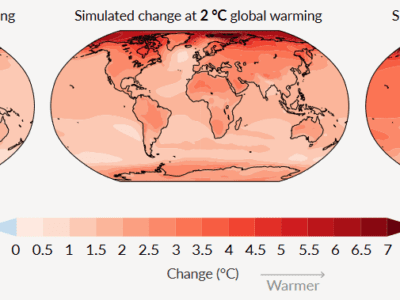Did the COVID Response Poison the Well for Climate Action?
Sadly, the answer may be yes, at least for one conspiracy-minded segment of the population.
One meme that seems to be popping up is that the “evils” of the COVID response reveal some dark reality behind climate policy. There’s obviously some kinship: public health responses to COVID and climate policy are both efforts to head off serious global risks — one that, in the case of COVID, has killed over a million Americans. But this doesn’t explain the conspiratorial overtones.
The conspiratorial view of COVID policy popped up in a speech by Vice Presidential candidate Nicole Shanahan on May 13. As reported by the NY Times, “’I often said Covid was the truth serum . . . Because it showed us things that people have been trying to hide from us for a really long time.” She added, ‘We can’t unfeel it — that raging sense of being controlled and captured and manipulated and herded. We’re not going to stand that anymore.’”
Shanahan’s running mate, RJK Jr., has made the link between this dark view of public health precautions and climate policy. Kennedy has said that “climate issues and pollution issues are being exploited by, you know, the World Economic Forum and Bill Gates and all of these big, you know, mega-billionaires, the same way that Covid was exploited, to use it as an excuse to clamp down top-down totalitarian controls on society.”
Kennedy expanded on that thought in an interview. He said that the climate crisis “has been, to some extent, co-opted — by Bill Gates and the World Economic Forum and the billionaire boys’ club in Davos — the same way that the Covid crisis was appropriated by them to make themselves richer, to impose totalitarian controls.” He continued, their goal was “to stratify our society, with very powerful and wealthy people at the top, and the vast majority of human beings with very little power and very little sovereignty over their own lives. Every crisis is an opportunity for those forces to clamp down controls.”
Kennedy has also spoken about what he sees as the link in the minds of the public: ““Americans had enough of that during Covid, of people using the crisis — that many people believe now was manufactured — in order to clamp down totalitarian controls and shift wealth upward. And they see a mirror of that in climate.”
Of course, this disturbing view isn’t limited to these two novice politicians. Most of their followers may share it. It also popped up earlier with rumors of “climate lockdowns” and muttering about the threat of climate policy to basic freedoms. Behind this is a raging distrust of all authorities, government or scientific, and a terror that one’s life is being shaped by dark forces outside one’s control.
This sentiment has always existed, but COVID seems to have brought it closer to the surface. And as the examples of Kennedy and Shanahan show, it’s easy enough for people who buy into conspiracy theories about COVID to apply the same distrust to climate policy.
Better understanding the psychological roots of this destructive response to crises would be helpful in addressing future crises. That understanding wouldn’t, unfortunately, provide any comfort to the future generations who will suffer the most from climate change — or to those whose family members died from COVID because others wouldn’t take elementary public health precautions.
Reader Comments
2 Replies to “Did the COVID Response Poison the Well for Climate Action?”
Comments are closed.







The obvious way to neutralize this attitude is to institute an effective climate policy that preserves personal volition: carbon fee and cashback.
Put an annually-rising tax on the carbon content of fossil fuels at the source, and return the collected revenue to individual taxpayers in equal shares.
As the tax rises over time, businesses will pass the cost of the carbon fee along to customers as they do any other upstream cost (like labor, capital investments, or other taxes), and high-carbon-content products and services will become more expensive. Low-carbon-content items will be relatively cheap. Businesses will squeeze carbon out of their processes and supply chains to remain competitive.
The cashback protects individuals from the rising costs of necessary items (e.g., gasoline and heating fuel) during the transition. For most people, the amount of the cashback will equal or exceed the amount of the cost increases from the carbon fee because their income isn’t high enough to cause their purchases to exceed the average carbon content of all US consumers. Only high-carbon users will be net payers. But anybody can exercise the choice to be a low-carbon consumer.
It’s important that the cashback payments be clearly linked to the carbon tax in real time, each and every time they’re paid. Canada put the carbon cashback system in place but, at first, handled that linkage poorly in its communications, leaving the fossil fuel interests demagogue the carbon tax in isolation. Those interests fear the carbon fee and dividend system because it’s increasingly effective.
The EU is instituting a carbon tariff. Starting in 2025, the US and other exporters to the EU will have to pay a carbon tax on those exports if they don’t have a carbon tax that’s equivalent to the EU’s.
This creates a natural opportunity for the US. The Energy Innovation and Carbon Dividend Act, HR 5744, is one possible response that would reduce carbon emissions in the US, and keep US exporters from paying the EU tariff.